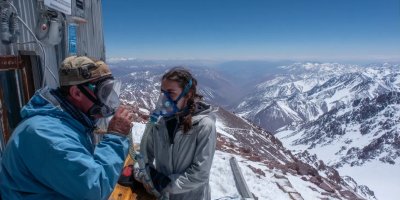
Machu Picchu Safety Guide 2025: Essential Tips for Secure and Worry-Free Travel
Comprehensive safety guide for Machu Picchu visitors. Health precautions, security tips, emergency procedures, and practical advice for safe travel.
Found 6 results related to this question
Our monitoring service tracks ticket cancellations and new releases 24/7. Get notified instantly when tickets for your preferred dates become available.
Traveling to Peru, particularly to iconic sites like Machu Picchu and Cusco, can be an exhilarating experience. However, the high altitudes of these destinations often lead to altitude sickness, affecting many travelers. To prevent altitude sickness, it's crucial to acclimatize properly. Begin your journey in Cusco—the gateway to Machu Picchu—and spend at least two days there before heading to higher elevations. This will allow your body to adjust to the thin air.
Staying hydrated is another key factor. Drink plenty of water throughout your trip, aiming for at least 2-3 liters daily. Avoid alcohol and caffeine, as they can lead to dehydration. Instead, consider sipping on coca tea, a traditional remedy among locals for altitude sickness.
Additionally, take it easy during your first few days. Avoid strenuous activities and give your body time to acclimate. Listen to your body; if you feel dizzy or nauseous, rest and take it slow.
Eating light meals rich in carbohydrates can also help. Foods like quinoa, potatoes, and fruits are not only delicious but also provide the energy you need without overwhelming your digestive system.
Consider taking altitude sickness medication like acetazolamide (Diamox), which can be prescribed by a doctor. This can help mitigate symptoms if you feel unwell.
As you prepare for your trek to Machu Picchu, remember to plan your itinerary wisely. Consider hiking the Inca Trail if you have time for acclimatization, or take the train if you prefer a quicker ascent to the site. Regardless of your choice, always prioritize your health and comfort.
Finally, keep in mind the cultural aspect of your journey. Engage with local communities and respect their traditions, as they have lived at high altitudes for generations and can offer valuable insights on how to cope.

Comprehensive safety guide for Machu Picchu visitors. Health precautions, security tips, emergency procedures, and practical advice for safe travel.

Complete guide to altitude sickness at Machu Picchu. Prevention strategies, symptom recognition, treatment options, and acclimatization tips for safe travel.

Learn about the health impacts of high altitude travel in Peru, including altitude sickness symptoms, risk factors, prevention strategies, acclimatization guidelines, and tips for safe trekking.

A practical, up‑to‑date guide to key Peruvian laws that affect travelers: visas and overstays, ID and police checks, customs and currency declarations, driving rules, alcohol and drug laws, drones and photography, protected areas, and more.

Complete solo travel guide for Peru. Independent travel tips, safety strategies, budget planning, transportation options, and detailed itineraries for solo adventurers.

A practical, 24/7-ready guide to emergencies in Peru: who to call (105/106/116), how to find hospitals and English-speaking help, what to do after theft or a lost passport, disaster prep, and how embassies can assist.
Set up instant alerts for ticket availability and never miss your chance to visit Machu Picchu.
Get Alerts